We’ve mentioned before that the Dutch are a generally happy bunch. Apparently the weather, the directness of their compatriots, and even the food – doesn’t get them down! Dutch women and Dutch children consistently rank among the happiest in the world (and we suspect their fellas do too).
This week some brainy scientists published the results of their new brainy research and it turns out that Dutch babies laugh, smile and like to cuddle more than their American counterparts. As you can imagine, the American press was in overdrive, “how could this possibly be?!”, “Why were Dutch babies so happy?!” and “who the heck are the Dutch anyways?!” 😉
On top of their cuddliness and content nature, Dutch babies “demonstrated greater expressions of happiness” and were in fact, “easier to calm or soothe when upset”.
Having experience my own “Dutch birth” and raising a child in the lowlands, there are marked differences in how the Dutch have and rear their babies. Many of our appointments at the Consulatatiebureau (aka: regular baby development appointments) have emphasized the Dutch people’s age-old parenting beliefs of the “3 Rs”: Rust, Reinheid en Regelmaat (which roughly translate to: rest, cleanliness and routine). I’ve found the advice to be both obvious and effective – in an above-all practical Dutch way.
Most interesting in the study was its possible explanation for the differences:
“A cultural emphasis on cognitive stimulation may lead U.S. infants to be more active and aroused than their Dutch counterparts. American infants also demonstrated higher levels of fear, frustration, and sadness.”
Anyone who has spent any time around Dutch parents know that flashcards, helicopter parenting, and the pursuit of stimulation are not high on their list. And so they shouldn’t!
Give those poor American babies a rest! Stop shaking those over-priced “developmental toys” in their chubby little faces. Stop with the Baby Einstein, the baby in-utero CDs and all that other garbage on those ubiquitous “top 50 lists for making your baby ‘that-much-more’ smarter”. I think both the babes – and their parents – will appreciate some much needed down-time!
Rest assured Americans: the worst outcome will be a slighty-more-Dutch-child, whose first word may be “gezellig”!! 😉

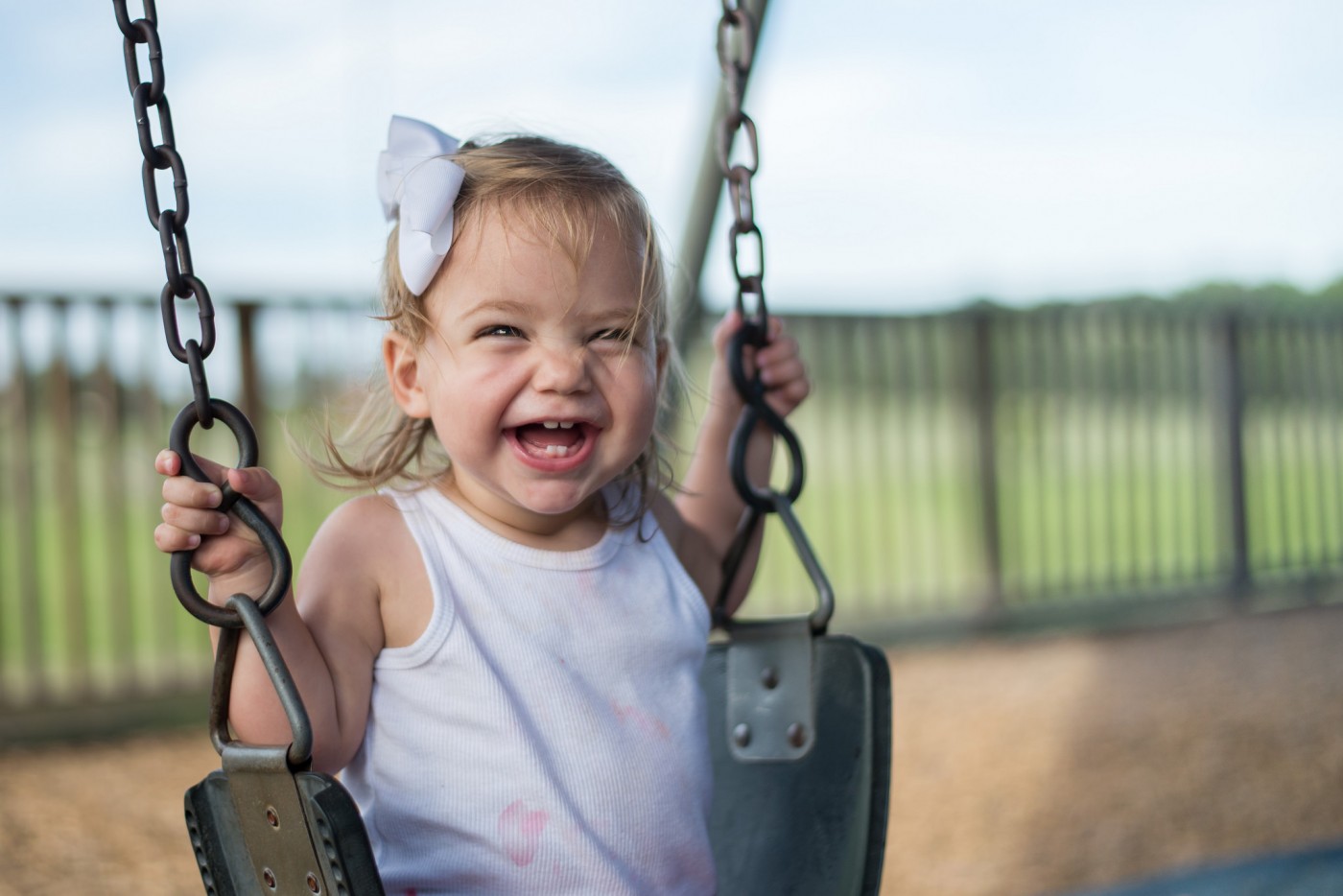
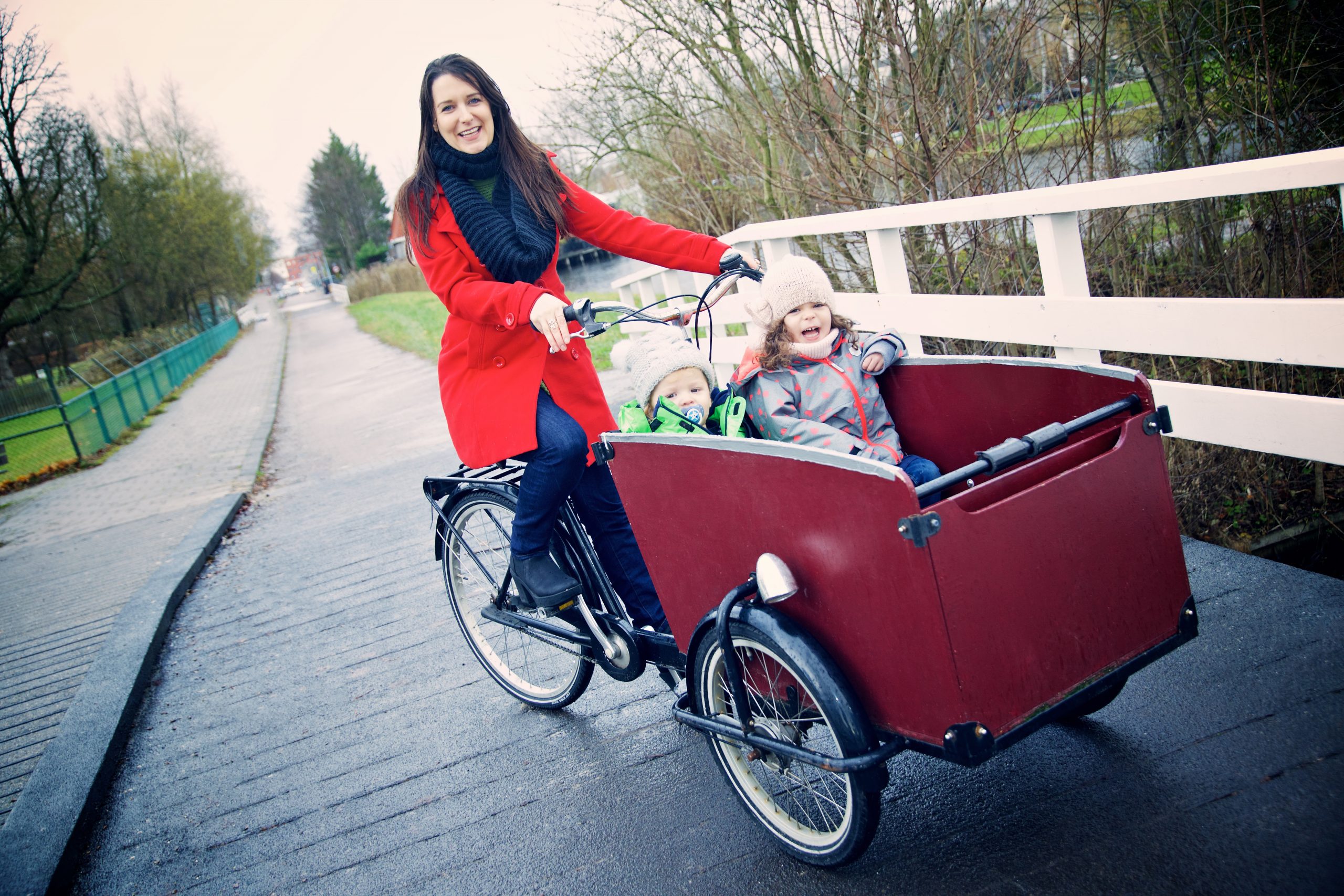
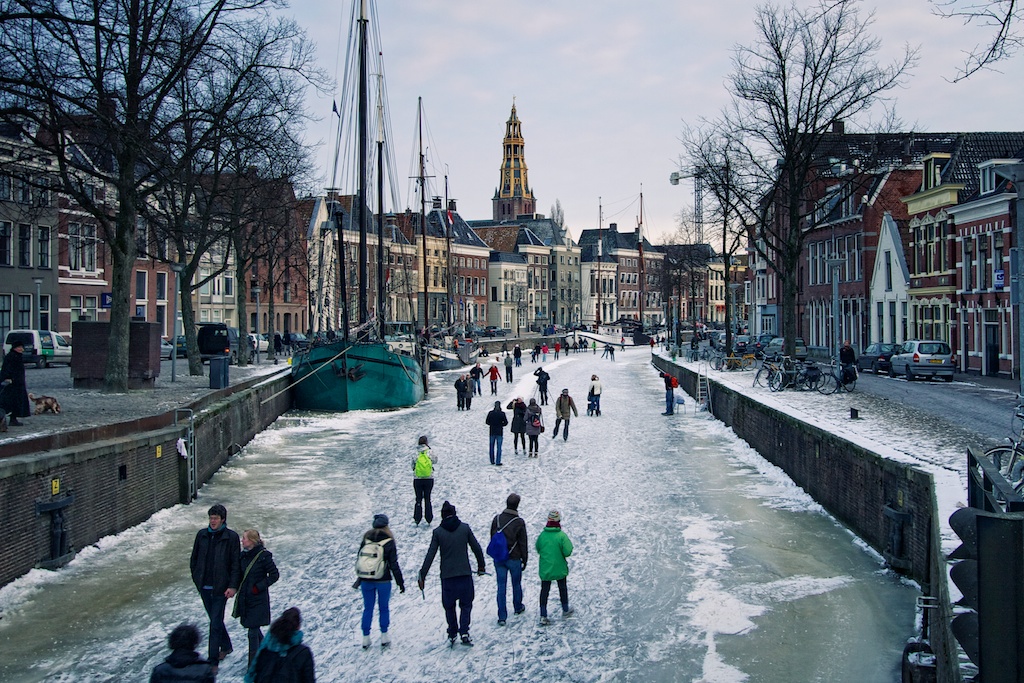


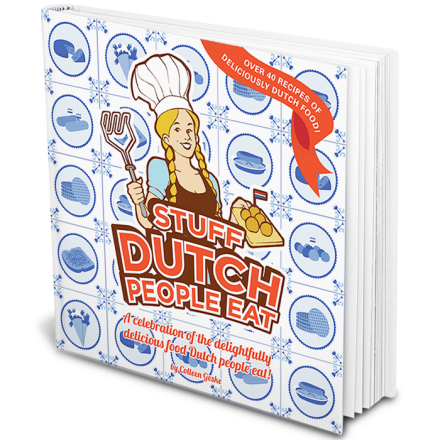
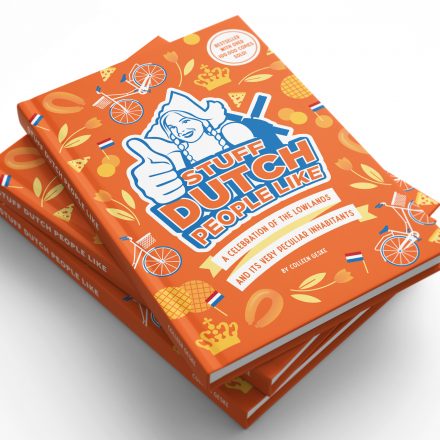
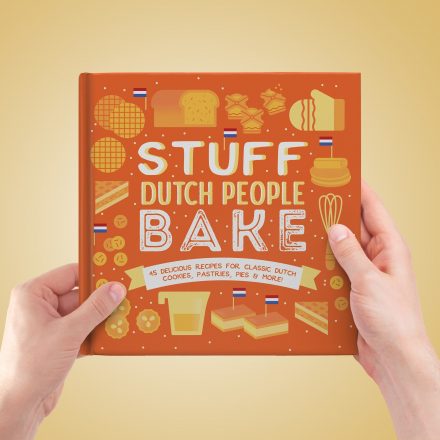

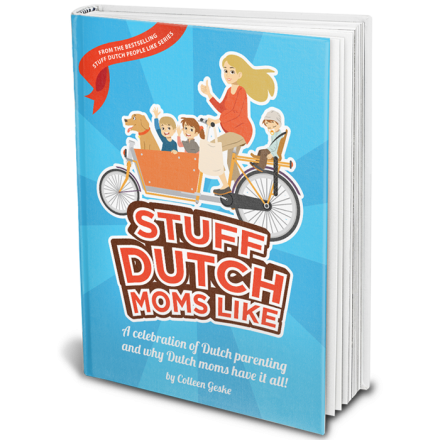
Don’t know how it is nowadays, but for this 63 year old, it was definitely early to bed! I resented it sometimes but we were not cranky, under-rested kids.
I’m with you Bob
Gezellig is important 🙂
Being ongezellig at home is a form of childabuse. But gezelligheid cannot be a duty you forfill, duty’s just are not gezellig.
Having lived in the US myself, I totally get it. The over-stimulation of children abhorred me. But I wonder: why don’t you add Canadian infants to this mix? I’d be very interested to read how you would compare them to Dutch kids.
As a side note: have you considered the Vrije School (Waldorf) for your kid? The Rust-Reinheid-Regelmaat is fully engrained in their kindergarten track. And as a Canadian, you must rejoice in the fact that it is free of charge, contrary to your own dear country, where more than $17,000 per year is charged. Now that may explain the happiness of Dutch mommies and their “fellas”!
http://www.torontowaldorfschool.com/admissions/fees/index.php#lower
I was born and raised in Amsterdam and spent my last four years of (secondary) school at a Vrije School after moving there from another school. I can totally recommend it: indeed very peaceful with a lot of personal attention towards all children. I was a very rowdy and rebellious teenager and any other school would have given up on me but the Vrije School pretty much broke me by having endless patience.
Also a lot of attention to arts and personal development in general which I feel is a plus. If you are more into the bèta subjects like math and science the school isn’t so specialised and deadlines and the like aren’t deemed too important so I had trouble later on in my life with that so make sure that you set strict rules on structure and consequence with your children if you send them to the Vrije School.
Just spent a whole day one-on-one (“papa-dag”) with my daughter of 10 months old, having a lot of fun. Crawling around together, cuddling, throwing her up in the air (and catching!!) and taking walks and run errands. All the cognitive stimulus she’s getting from me is clapping in hands, waving, and learning hand gestures for food, our cats, mom, dad, and seeing other people and new things every day. It was a gezellige dag 🙂
hiep hiep hoera!
The “pursuit of stimulation” sounds horrible. Import is to talk. Talk a bit to your baby and talk dowdy all day on what you are doing “zo, nog even de vloer vegen, dan is alles aan de kant”, “we gaan lekker in het zonnetje zitten met een kopje thee”, “o, die watervlek meteen opnemen, dan gaat het hout niet vlekken”. Toddlers and even babies learn from it. Lexicon, reasons, cause & consequence, problem solving, emotions, doing the cores, disciplines, formulating what you want to do/have/speak out, etc. Let the babies be babies, don’t drive them up like a tiger mom.
Totally agreed here! Just don’t use “babytalk”. don’t call it a “footsiewootsie”, just say foot, or little foot. The kid gets a better pronunciation and is faster in it’s linguistic development. and how ever sweet it sounds if your toddler says: “Appelsoem”, don’t begin using that wordt for “appelmoes” yourself. How will they learn?
True! Children that flip syllables, think they pronunciate it in the rigtht way and don’t notice that it flipped by their underexercised nerves system.
When my mother was joking, we could get what we asked for on our bilderitsie. When she was angry with us, we could be treated on de bibs/billen.
I agree completely with the above posting. I was raised in Holland by Dutch parents. I raised my children kind of the same way. Play, sing songs and did not tell them the horrors what took place in the world. They were careless children the way it should be, they played and laughed. I sometimes teased them, which they did not really like, but it was not mean teasing. it was playful.
They had to help dry dishes and clean them away, but me and my husband would sing songs , Hits.. so to say , so my children learned the lyrics and sang along.
Agreed Mieke, My 3 year old grandson is a pretty happy little guy thank goodness–maybe from his “made in Holland” father??
How about: Dutch women Give birth naturally…no pain medication. It is proven that because of that there are less medical interventions needed… I would not be surprised that this Dutch natural birth thing could be the underlying factor…
Except they don’t. Trust me, Dutch women use drugs when giving birth
No I didn’t.
Nope, did not either, both times. First time at home, second time in hospital but no drugs
(am not sure thought that this is the reason for dutch children being happy 😉
Broad generalization, I’ve noticed it depends in which area you live in Holland too. And why make the comparison to American kids? There are other countries you know.
Why don’t you ask the American researchers who did this study?
You’re a whiner? It’s a reasonable and accurate generalization, so why not make it, and why not compare to American kids? Should it be a comparison to Russia? What would make you happy?
My grandson (2 years old) sitting on the couch with my husband and asking me for making coffee to make it more “gezellig”…
A Dutch Baby is the name of a lovely pancake in America
Moving here from the States was a positive move in my parenting. We were “disturbingly laid back” on the playgrounds in Chicago and now we seem to be more on the neurotic end of the spectrum in NL. But seriously, other parents make parenting too stressful in the US.
Hi Zach,
Colleen does not make that comparison, scientists do. Colleen just cites their study. In case you missed the link:
http://www.tandfonline.com/doi/full/10.1080/17405629.2014.937700#tabModule
That said, I would also have appreciated a comparison between Canadian and Dutch kids. What is it like to grow up in Canada compared to what Colleen sees around her in the low lands? Maybe that is an idea for another post?
You are entirely right !!!
I know a lot of Dutchies who are happy anyway, but particularly happy not to be Americans!
Well that’s pretty racist thing to say, just like most Dutch people based on my own experiance living here.
I thought in the USA there are vere many different races, so when people talk about Americans, that’s not racism.
I will never forget the moment that we (Dutch) were at ( an American international) school and the teacher started reading all the results of the tests of our 4th grader.
At the end of her list she asked us if we had any questions and I said Yes! I asked her: is my daughter a happy person in your lessons. The teacher definitely did not see that question coming, and I told her that I didn’t care and was not interested in her results, I only cared if she was happy, because in my opinion (and according to her results) they will only learn a lot when they are happy.
I think not just the difference in over-stimulation is the issue. Dutch parents also tend to have a better home/work balance, not missing out on important events in the child’s life because of work.
I have been using stimulating toys and baby Einstein etc, and my child is a very happy child. However, it did get lots of other attention too, and the stimulating was never forced, if he wasn’t interested I took it away.
IMO it is also not good to understimulate a child because you are afraid it might get overstimulated. Let the child decide how much it wants to learn and it will be a happy child.
That’s certainly possible Erwin – it seems quite common for people to only get about 21 days annual leave in the USA. Saying that, I didn’t think maternity and paternity leave in NL is terribly generous…? My employers (in the UK) are perhaps unusually generous, but females get 12 months fully paid maternity leave and males 4 weeks (!).
I agree Erwin – I think the work/ life balance and prioritisation of home/family/ private life is a key difference between Dutch and English society and has a huge impact on family life/happiness. My mother is Dutch, I grew up in England and I spend some time in the Netherlands every year.I’ve been observing and puzzling over the differences for about the last 40 years…endless source of interest and amusement!?
Don’t worry you are gaining rapidly on us. Or to be more accurate we are regressing towards the US level quickly. As an austerity measure the number of one on one contact moments between the baby/parent and doctor/nurse is reduced from 6 to 2.
Love the Dutch people!
Probably it is a social economic issue. Children with parents below a certain income threshold or with certain number of hours to work a week will be more stressed. As the Netherlands has a good GDPP and less working hours on average than the States it probably explains the gap. Cultural aspects, child rearing concepts and levels of simulation in children are probably more mythological. People love the idea of national character myths in so many studies but usually they are just that, myths.
I believe that there is a certain truth to the “cultural aspects”. Yes, the financial situation would be 80% of the answer but what amazes me on a regular basis is the actual freedom that children get. In my eyes it’s sometimes borderline dangerous. I’m not from the US nor the NL, so maybe I have a completely scewed vision on this but what seems to lack here are physical/social boundaries. Little kids play EVERYWHERE, they roll/lie/sleep/lick shop floors/train floors/people. Never have I heard a mother say “don’t do that”, try to stop her child. or make it say “sorry” if it was being a little pest to others.
My favorite was when a little kid was rolling around right in front of the escalators at Schipol train station. Yes, it was outside of rush hour and there were few people, but it takes for one dropped bag at the top of the escalator to turn the kid into pate at the bottom. The mother was observing her kid and staring down everybody using the escalator, like we are the ones responsible for her child’s welfare. Meanwhile it was rolling it’s toy on the ground and promptly putting it in it’s mouth.
I am not a mother but I remember my parents with their constant “don’t” and lengthy explanations about germs, dangers, how I should be polite to people and not get in the way….
Yes, the kids are happy, free and unburdened but … wow, does it seem strange!
I recognise the scene you describe, i would see children living with very little or no boundaries or rules everywhere i went in NL (i lived there for nearly 6 years). IMO, a result of this total freedom and no basic discipline meant that Dutch kids were generally pretty anti-social: Incredibly loud with an over-inflated sense of their own importance and generally disruptive everywhere they went (which was *everywhere*). The parents – in general – seemed to think that their kid’s right to a sense of absolute freedom outweighed the importance of everyone else’s right to a quiet and stress-free life.
To be honest – and I know the Dutch really *love* a bit of honesty – Dutch kids routinely ruined my day…..
I live in Scandinavia now and the kids here are much more bearable to be around. They have the freedom to “be children” and are encouraged to learn through play, in fact, they don’t start formal school until around 7 years old, but they are taught to respect other people and behave in a way that benefits everyone in society, not just themselves. Thanks to Jante’s law they don’t feel that they are more important than anyone else and as a result grow up to be generally more considerate, reserved and less selfish.
Dutch parenting menthods could really do with a little dose of Scandinavian style.
In general…when considering producing off-spring….suggest both potential parents ask & answer the following question:
What’s so damned special about my own DNA pool that deserves to be preserved for future generations?
I did and decided not to re-produce at all 🙂
What-on-earth do “helicopter parenting” and “flashcards” ever mean?
Yeah, I know, I’m dutch indeed… I know flashcards only as a tool for learning words and their definition by heart in an efficient way. (the digital version is teach.nl)
I’m not sure how it is with babies, honestly I think nowadays both working parents putting them in day care more often then having time themselves isn’t helping in their RRR.
When they start going to kindergarten and school later on however, the didactic system is primarily geared to “having fun in learning” rather then learning itself. Compared to other countries I visited there is a lot less pressure in getting high grades, which I think causes a lot more carefree youth.
https://www.youtube.com/watch?v=RgWbxE8zdC4
https://www.washingtonpost.com/news/parenting/wp/2015/11/05/are-they-the-worlds-most-relaxed-moms-what-we-can-all-learn-from-the-dutch/
I just wrote a paper for my Chinese stepdaughter, who had her first baby.
I used some results of a Dutch study (Nationale Denktank) and added some of my own experience with 4 children, 3 stepchildren and 6 grandchildren.
Learning the future
Learning the future is largely determined in the preschool period.
The connections in the brain for sight, hearing, language and other higher cognitive functions such as knowledge, memory and understanding are mainly created in the brain during the first four years.
The appropriate support for the development of the brain between 0 and 4 years has proven to yield tremendously for later years of life.
It leads to a child that is healthier, has more language skills, has self-confidence, is stress resistant and can adapt well. This gives a child a five times less likely chance to fail at school and ultimately a better chance to have a higher income and a happy life.
Talk to your child.
Children of parents with low education are hearing an average of 616 words per hour, compared with 2153 words for children belonging to highly educated parents.
After four years, before they go to school, there is already a knowledge difference of 30 million words!
It is logical that a child that already absorbed so many more words in the first four years of life, will be better prepared for school.
Be their example
It is essential to raise awareness among parents that they are the example for their child; they take everything what the parents do and the life pattern of the parents is also decisive for the doings of the child in later life.
Important points of consideration are:
– Tranquility, Purity, Regularity
– Talk, sing, play, let it do things and explore.
– Hug, laugh, react, read, consistency (yes is yes, no is no).
Yes, these important points of consideration.
This year I read again the princess Amalia was thougt layed back. Don’t know how you still can think that, she is skipped a class, but in her first years she looked a bit like a down-child. I have seen more often that children who were too wrapped in by caring mothers and other caretakers, are very passive and make you wonder if they have the syndrom of Down.